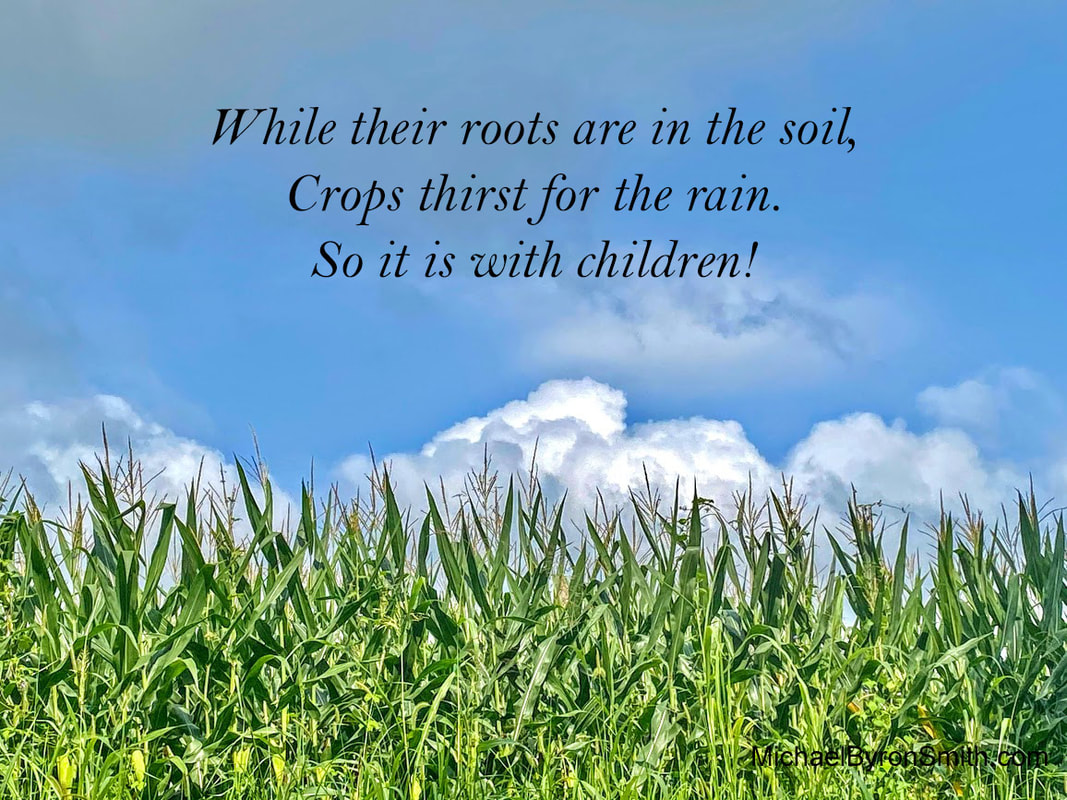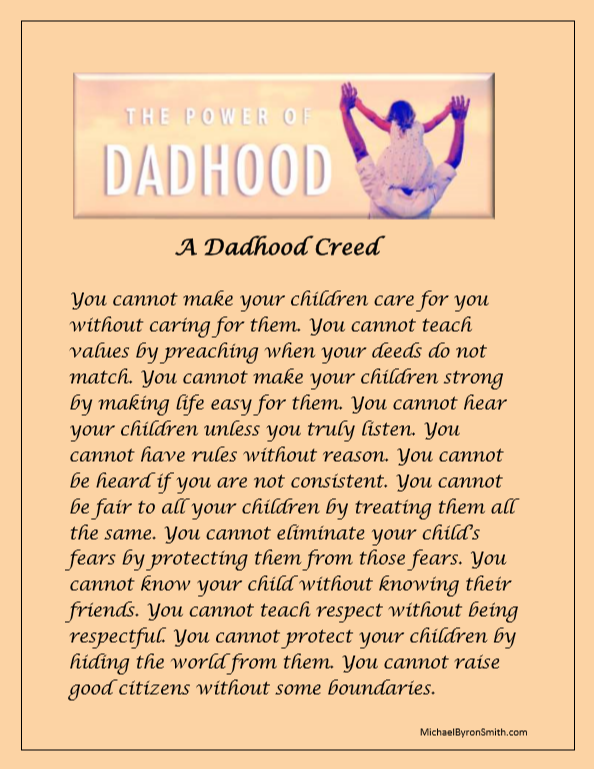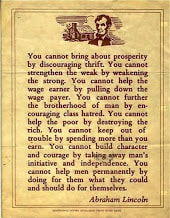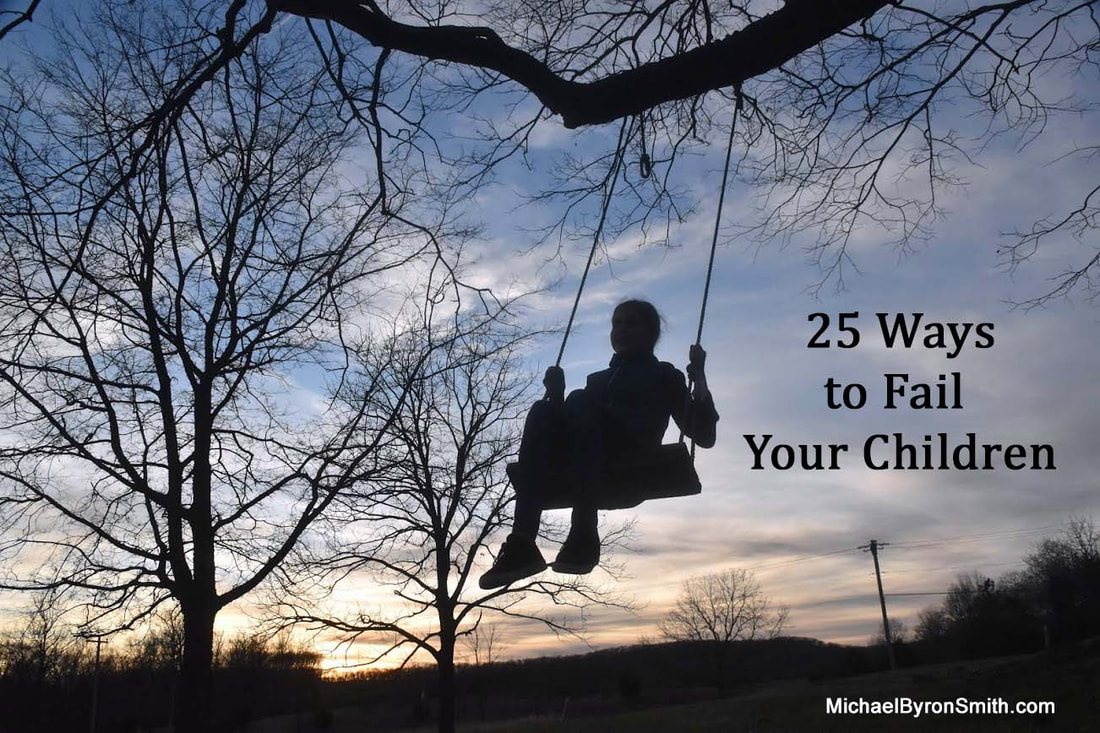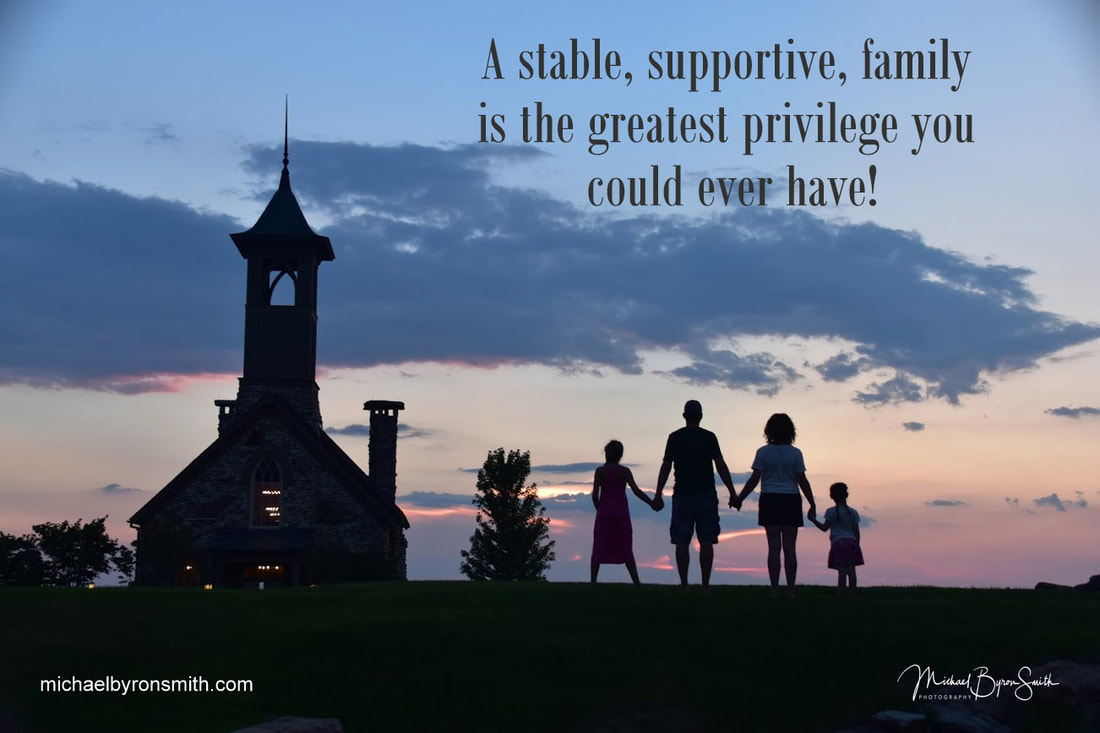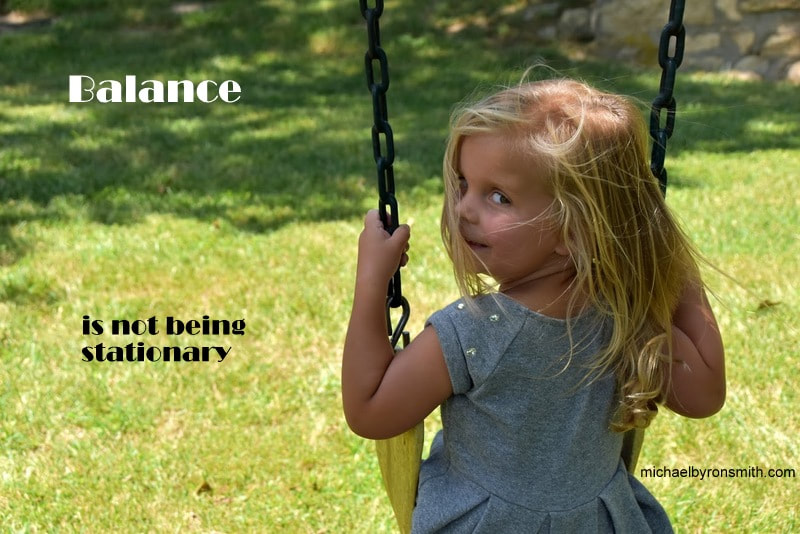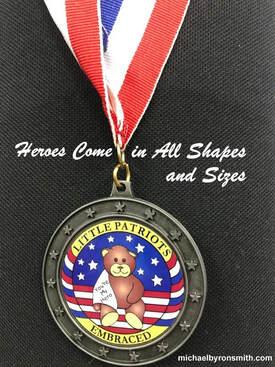In a metaphorical sense, fathers are ‘rain’ while mothers are ‘soil’. We notice the rain more than the soil. When it gently rains on a field of corn, it is something for which we are thankful. When the rain becomes a deluge and doesn’t let up, damage can occur, and it is cursed. When rain fails to come, the crops are in danger of growing improperly. But quietly, the soil does its job - incubating the seeds, allowing for roots and stability, and providing necessary nutrients. When soil and rain work together, crops are healthy and plentiful!
An excellent book for all men with daughters is Strong Fathers, Strong Daughters by Meg Meeker, M.D., a pediatrician who is an expert on the treatment of adolescents with medical and social problems. She writes:
“I have watched daughters talk to their fathers. When you come in the room, they change. Everything about them changes: their eyes, their mouths, their gestures, their body language. Daughters are never lukewarm in the presence of their fathers. They may take their mother for granted, but not you. They light up — or they cry. They watch you intensely. They hang on your words. They wait for your attention, and they wait for it in frustration — or in despair. They need a gesture of approval, a nod of encouragement, or even simple eye contact to let them know you care and are willing to help.”
With boys, their fathers are the example that their sons look to when they are learning to be men. In his book, Man Enough: Fathers, Sons and the Search for Masculinity Dr. Frank Pittman states,
“There was no secret to fathering, no magical answers about masculinity that are passed on from generation to generation. Boys learn to be men by being with their fathers, experiencing the world and living life. But if they haven’t had that experience, they may never feel comfortable with an awareness of what it means to be a man, what they are supposed to do with their masculinity, and how they can become fathers themselves.”
Of course, mothers have been the standard-bearer for parenting. They have shown to be the more reliable and nurturing parent throughout history. But mothers and fathers have different roles, often characterized by the steady hand of the mother and the stimulation of the father.
We know that both the soil and rain are necessary for the fields of corn to thrive. When rainfall is not sufficient, crops will not flourish. When the soil has little or no nutrients, the rain will have little impact on the crops being healthy. So it is with children! When fatherly attention is lacking, or motherly love is weak, children are at high risk for trouble or failure. When both of these situations exist, a child’s future is tragically burdened with predictable, and unfortunate results.
It is good for the family when parents have different strengths, because children have various needs that can vary from child to child. Of course, the metaphor is not perfect. Parental roles and family outcomes are not set in stone. But both parents are critical factors in the mental and physical health of their families even if the father is the soil, and the mother is the rain. Children want your attention and need your positive influence. Fathers mustn’t waste the advantage they naturally have with their daughters and sons. Mothers must encourage and appreciate what the fathers have to offer. Having happy children growing into responsible adults will likely be your most significant contribution to society.
May your crops be healthy and bountiful!
#powerofdadhood

